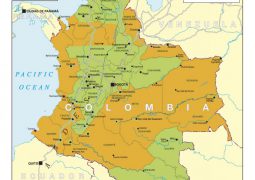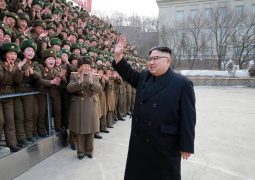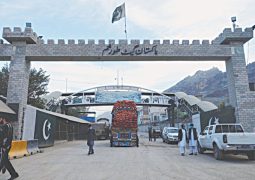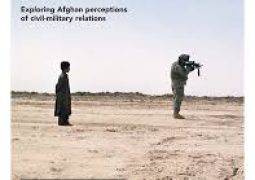Iran passes new nuclear deal limit, China blames US for crisis for this
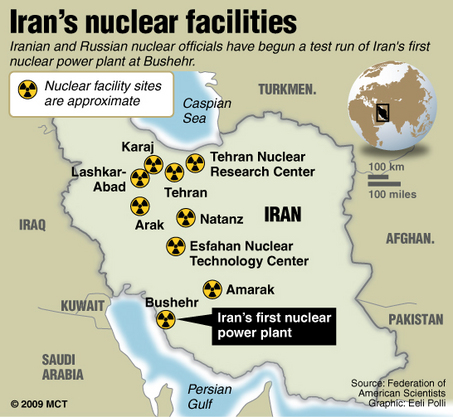
Tehran begins enriching uranium beyond deal limit as Beijing denounces US’s ‘unilateral bullying’.
Iran has passed the uranium enrichment cap set in its 2015 nuclear deal, marking the second time in a week that it made good on a promise to reduce compliance with the international pact following the United States‘ unilateral exit last year.
The announcement on Monday from Iran’s Atomic Energy Organization came amid growing frustration in Tehran over a failure by the landmark accord’s remaining signatories to deliver on its promised economic benefits.
Behrouz Kamalvandi, spokesman for the nuclear agency, confirmed Tehran had enriched uranium beyond the 3.67 percent purity that the deal allows, passing 4.5 percent, according to the Iranian students’ news agency ISNA.
On July 1, Iran passed the uranium stockpile limit permitted by the deal, and officials on Sunday pledged to keep scaling back their commitments every 60 days unless Britain, China, France, Germany and Russia protected it from the punishing sanctions imposed by the US following its withdrawal.
A day after US officials threatened Iran with further “sanctions and isolation”, some of the pact’s other parties hit out at Washington for escalating the crisis that has thrown into question the future of the accord, which offered Iran relief from sanctions in exchange for drastic limits on its nuclear programme.
“The facts show that unilateral bullying has already become a worsening tumour,” Geng Shuang, spokesman for China’s foreign ministry, told a press briefing in Beijing on Monday.
“The maximum pressure exerted by the US on Iran is the root cause of the Iranian nuclear crisis,” he said.
Moscow also blamed Washington and pledged to pursue diplomatic efforts to salvage the deal, with Dmitry Peskov, Kremlin spokesman, saying on Monday: “Russia aims to continue dialogue and efforts on the diplomatic front.
“Russia and President [Vladimir] Putin warned of the consequences that would be imminent after one of the countries decided to end its obligations and exit the deal.”
‘Door of diplomacy is open’
In Tehran, Abbas Mousavi, spokesman for Iran’s foreign ministry, said that while Iran appreciated the efforts of some nations to save the deal, it has “no hope nor trust in anyone nor any country”.
“But the door of diplomacy is open,” Mousavi told reporters on Monday, adding that Emmanuel Bonne, a senior aide to French President Emmanuel Macron, was scheduled to visit the Iranian capital in the coming days.
He also issued a stark warning to the pact’s European signatories about the second 60-day deadline Iran set on Sunday.
“If the remaining countries in the deal, especially the Europeans, do not fulfil their commitments seriously, and not do anything more than talk, Iran’s third step will be harder, more steadfast and somehow stunning,” he said, referring to the September 5 deadline.
European countries do not directly support the US sanctions, but have been unable to come up with ways to allow Iran to avert them. A spokeswoman for the EU, however, urged Iran to abide by the deal, saying the bloc was “extremely concerned” by the latest moves.
“We strongly urge Iran to stop and reverse all activities that are inconsistent with the commitments made under the JCPOA,” EU spokeswoman Maja Kocijancic told reporters on Monday.
Separately, Kamalvandi, the spokesman for Iran’s nuclear agency, hinted in a state television interview aired on Monday that the country might consider going to 20 percent enrichment or higher as its third step, if the material was needed.
Such a move would be dramatic, since that was the level Iran had achieved before the deal was put in place. It is considered an important intermediate stage on the path to obtaining the 90 percent pure fissile uranium needed to make a nuclear bomb.
Kamalvandi also suggested using new or more centrifuges, which are limited by the deal.
Iran says its recent measures to increase enrichment beyond the 3.67 percent cap and stockpile uranium beyond the 300kg limit could be reversed within “hours” if the pact’s signatories shielded it from the US sanctions, particularly those on its oil and banking sectors.
The nuclear diplomacy is only one aspect of a wider confrontation between Washington and Tehran.
Last month, Trump ordered air strikes on Iran, only to call them off minutes before impact. The move came after Iranian forces shot down an unmanned US drone saying the plane had violated its airspace.
Washington denied the claim, saying it was downed over international waters. The US’s European allies have been warning that a small mistake on either side could lead to war.
Britain, one of Washington’s main European allies, was drawn deeper into the confrontation last week when it seized an Iranian tanker it said was bound for Syria, in violation of separate EU sanctions on Syria.
Iran has called the tanker’s detention a “threatening act” and denied it was heading for Syria.
- Previous After Sri Lanka attacks, Muslims face boycotts and violence
- Next German ground troops for Syria: US aks




